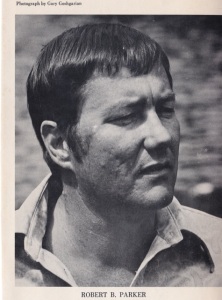
Charles P. Everitt handled an inestimable number of books during his career as a rare bookseller, but this collection of memoirs is the only one he published (he did compile a number of auction catalogues). It has become a classic that is read, and re-read by the relatively tiny contingent of used and rare booksellers and those who have dreams of joining the tribe, but it is almost unknown outside that circle.
Why do I own it? Like so many of my books I’m re-discovering, it was a gift. This one came to me from Margot Cross, proprietor (1988-ca2003) of Athabasca (Used) Books in the Old Strathcona district of Edmonton (8228 – 105 Street, just north of Whyte Avenue; the shop has been closed for several years). At the time, I was an employee of Margot’s, moonlighting at Athabasca to get experience selling and buying used books. My plan was to learn if I was sufficiently interested in and had any aptitude for the used book trade. In the end, I decided that it would be wiser not to take the plunge (as it almost certainly would have been), and instead do something more likely to produce a steady income on which two could live. I am very grateful to Margot for assisting me in making the right decision!

Charlie’s book was one of several books that Margot passed to me as part of her informal instruction of Bookselling 101.
One of the first features of Adventures that I noticed is that Everitt didn’t spend much time setting up the context of his tales. He correctly assumed that anyone who picked up his volume would want quickly to get to the good stuff; in other words, his great strength throughout the book is his recounting of bookselling anecdotes and he recognized that and concentrated on it. He tells these tales with proper attention to what most of us are keen to know: how much he spent to acquire a book, and what he ended up getting for it when he sold it. Everitt addresses these questions with grace (unlike, say, A. S. W. Rosenbach in his many books on the same subject which seem to me to be more crass) that makes his stories not only more palatable than many others in the genre, but delightfully engaging.
The fact that Everitt focused almost exclusively on American books in no way dilutes my enthusiasm for his book . . . strangely. I have very little interest in or patience, typically, for books on the subject of the history of Canada’s southern Elephantine neighbour. But in this case, I not only endure Everitt’s subject, I almost revel in it!
Here are four pages from Adventures – picked almost randomly – which I think offer a pretty good idea of Everitt’s story-telling style:


The text is available online or as a free download at archive.org. Or, if you prefer (as I do), to go old school, it may be had from ABEBooks for the cost of about $CDN20.
I’ve acquired a small collection of used booksellers’ memoirs (1) since moving on from Athabasca and Edmonton. Some are tedious, most are interesting to me but would not hold the interest of a general reader.
The Adventures of a Treasure Hunter is the only book I’ve read in the genre which I’d recommend without reservation to anyone. Everitt’s style is infectious and he includes just the right dose of grumpiness and greed in his stories which – accurately or not – many of us attribute, with affection, to used booksellers.
In short, Charlie’s book is great fun to read!
Notes
(1) These include: Booking in the Heartland by Jack Matthews; The Side Door: Twenty-Six Years in my Book Room, by Dora Hood; A Book Hunter’s Holiday, by A. S. W. Rosenbach; Sixpence House: Lost in a Town of Books, by Paul Collins; and A Passion for Books by (consummate bookman) Lawrence Clark Powell.






